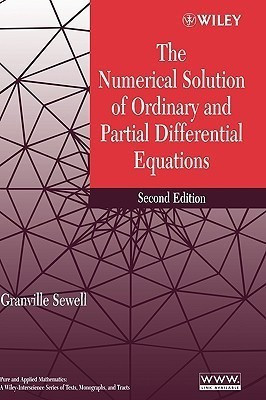The Numerical Solution of Ordinary and Partial Differential Equations(English, Hardcover, Sewell G)
Quick Overview
Product Price Comparison
Learn to write programs to solve ordinary and partial differential equations The Second Edition of this popular text provides an insightful introduction to the use of finite difference and finite element methods for the computational solution of ordinary and partial differential equations. Readers gain a thorough understanding of the theory underlying themethods presented in the text. The author emphasizes the practical steps involved in implementing the methods, culminating in readers learning how to write programs using FORTRAN90 and MATLAB(r) to solve ordinary and partial differential equations. The book begins with a review of direct methods for the solution of linear systems, with an emphasis on the special features of the linear systems that arise when differential equations are solved. The following four chapters introduce and analyze the more commonly used finite difference methods for solving a variety of problems, including ordinary and partial differential equations and initial value and boundary value problems. The techniques presented in these chapters, with the aid of carefully developed exercises and numerical examples, can be easilymastered by readers.The final chapter of the text presents the basic theory underlying the finite element method. Following the guidance offered in this chapter, readers gain a solid understanding of the method and discover how to use it to solve many problems. A special feature of the Second Edition is Appendix A, which describes a finite element program, PDE2D, developed by the author. Readers discover how PDE2D can be used to solve difficult partial differential equation problems, including nonlinear time-dependent and steady-state systems, and linear eigenvalue systems in 1D intervals, general 2D regions, and a wide range of simple 3D regions. The software itself is available to instructors who adopt the text to share with their students.


